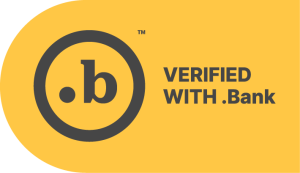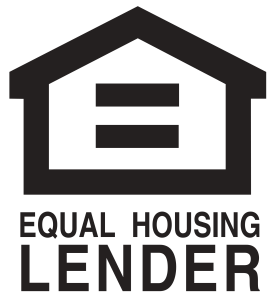As the holidays near, a familiar perennial message will start sprouting up in store windows and on social media: buy local. The argument is a solid one, and for many of the same reasons, you should consider banking locally (if you don’t already).
Small businesses have honed their messaging in recent years, coming up with snappy slogans and sayings that fit nicely on T-shirts and bumper stickers: Think globally, shop locally. Shop small business and support a big dream. You can’t buy happiness, but you can buy local, and that’s kind of the same thing.
The words may change, but the sentiment is the same—keeping your money in your community is good for Main Street.
When you buy or bank locally, you vote with your pocketbook.
We speak with our dollars and where we choose to deposit or spend them does indeed matter. Small purchases here and there may not seem like much, but they make a big difference over time. Local stores and community banks rely on your continued loyalty—and business—to continue selling the products or services you value.
Take Small Business Saturday, for instance, which encourages consumers to concentrate their spending at local businesses on the Saturday after Black Friday. Since its inception in 2010, Small Business Saturday has generated more than $120 billion in revenue for independent retailers and restaurants.
There are many benefits of buying locally. You’re helping the people who own and work at the businesses make a living. Tax collected on items sold in their stores goes toward public projects and services that benefit the community. And many local businesses support local charities.
For some, though, it’s as simple as protecting what they love about small-town America. In the era of market consolidation and national chains, they’ve decided to consciously support the hometown coffeehouse, gift shop or clothing boutique—even if it means paying a little more.
The “buy local” and “bank local” mentality go hand-in-hand. Here are four compelling reasons community-minded consumers should bank locally:
1. Community banks provide the majority of small business and home loans.
Megabanks may have trillions of dollars in assets (that’s not hyperbole) and branches all over the country, but community banks account for 99% of all U.S. financial institutions.
According to the Independent Community Bankers of America, community banks provide more than 60% of small business loans and more than 80% of agricultural loans throughout the country. In many cases, strong personal relationships between community bankers and local business owners means less red tape for loans. Local banking means local decision making. That’s a big plus for small businesses, which reported a 79% satisfaction rate with small banks in 2019.
If you’re part of the “buy local” movement, it just makes sense to bank locally. Community banks are extending credit to many of the small businesses you patronize every day.
2. Community banks are playing a pivotal role in the COVID-19 economic recovery process.
In the face of the coronavirus pandemic, small businesses are struggling to survive as many of their counterparts have called it quits. Many have turned to their community banks for help.
The widespread economic shutdown in early 2020 triggered a recession that’s battered small businesses, with nearly 100,000 deciding to close for good as of August 31, according to Yelp. Restaurants and retail stores, especially on the West Coast, have been hit particularly hard.
Right out of the gate, community banks stepped up to help process and disburse Paycheck Protection Program (PPP) loans through the U.S. Small Business Administration. In fact, banks with less than $10 billion in assets issued about 60% of the first round of PPP loans. For many local businesses, these rescue loans literally saved their business from shutting down permanently—and community banks were integral to the relief efforts.
3. Fees are typically lower at community banks.
You might think bigger banks would offer higher interest rates on deposits and lower fees for opening a checking or savings account, but the data suggests otherwise.
A 2017 study by DepositAccounts.com found that small banks are offering some attractive interest rates. More than three-quarters of the highest-yielding checking accounts and 65% of the highest-yielding savings accounts in the nation were being offered by small banks. The annual percentage yield across checking, savings and 1-year and 5-year certificates of deposit averaged 2.19 percent for banks with less than $1 billion assets, according to the study.
One city or metro area might have several community banks, which means those institutions are competing for the same customers. And that competition usually translates to lower fees and better deposit rates.
At Community Point Bank, we strive to make personal banking accessible and affordable. We offer a variety of checking and savings accounts as well as CDs. And because we offer all the latest in banking technology, you can conveniently bank with us how and when you choose.
4. Local banks have a reputation for supporting their communities.
There are plenty of good reasons to bank locally, but we’ve saved the best one for last—community banks are known for giving back. Whether it’s sponsoring a youth sports tournament, raising funds for the American Cancer Society or holding a holiday gift drive—local banks truly share the wealth.
Small banks are investing in their communities through a number of creative and inspiring initiatives focused on education, poverty and housing, just to name a few. Earlier this year, a bank in Virginia announced it would donate 10% of the fees it collected through the PPP program to area health care foundations.
The list goes on and on. Community banks are indeed good for their communities. If you’re ready to bank locally, the ICBA has a handy tool to help you find community banks in your area. And if you live in or near Russellville, Eugene or Versailles, you’re in luck. We have locations in all three towns. Come by and see us!




